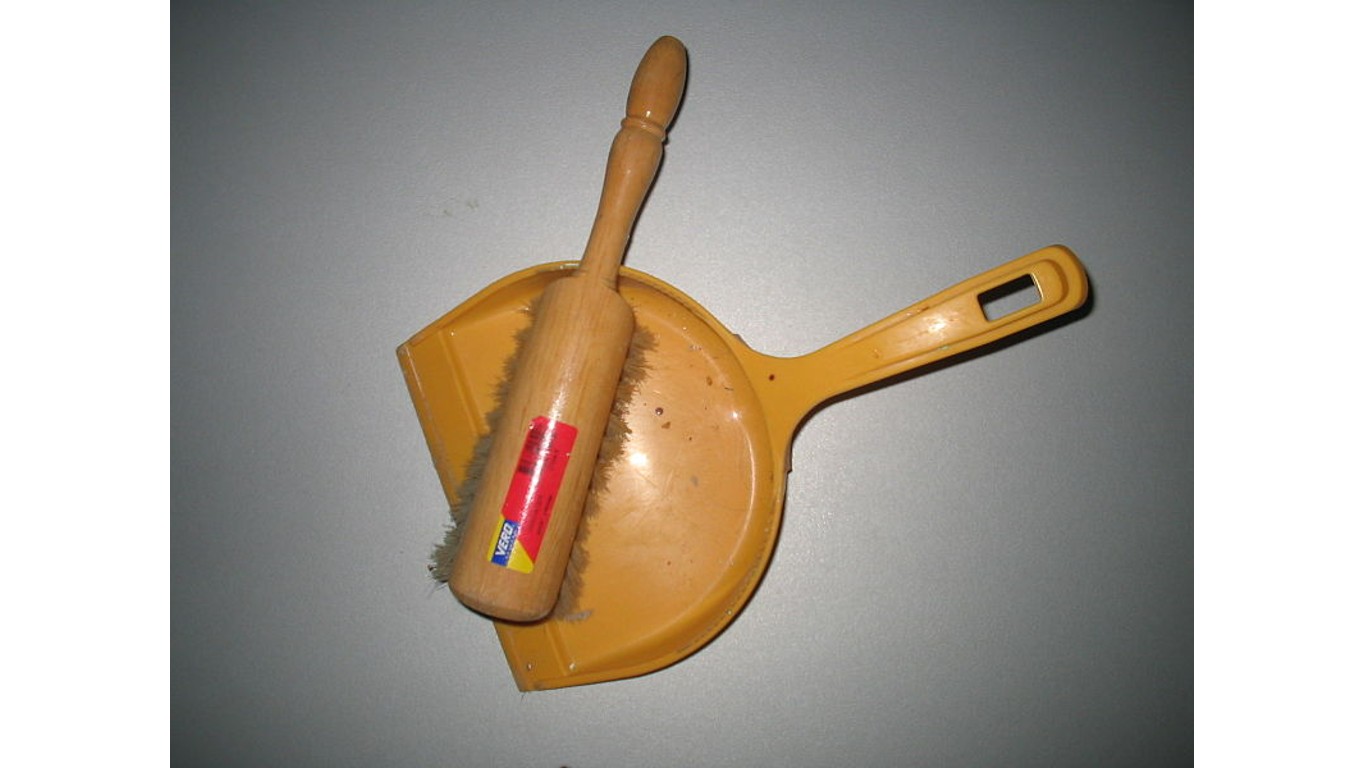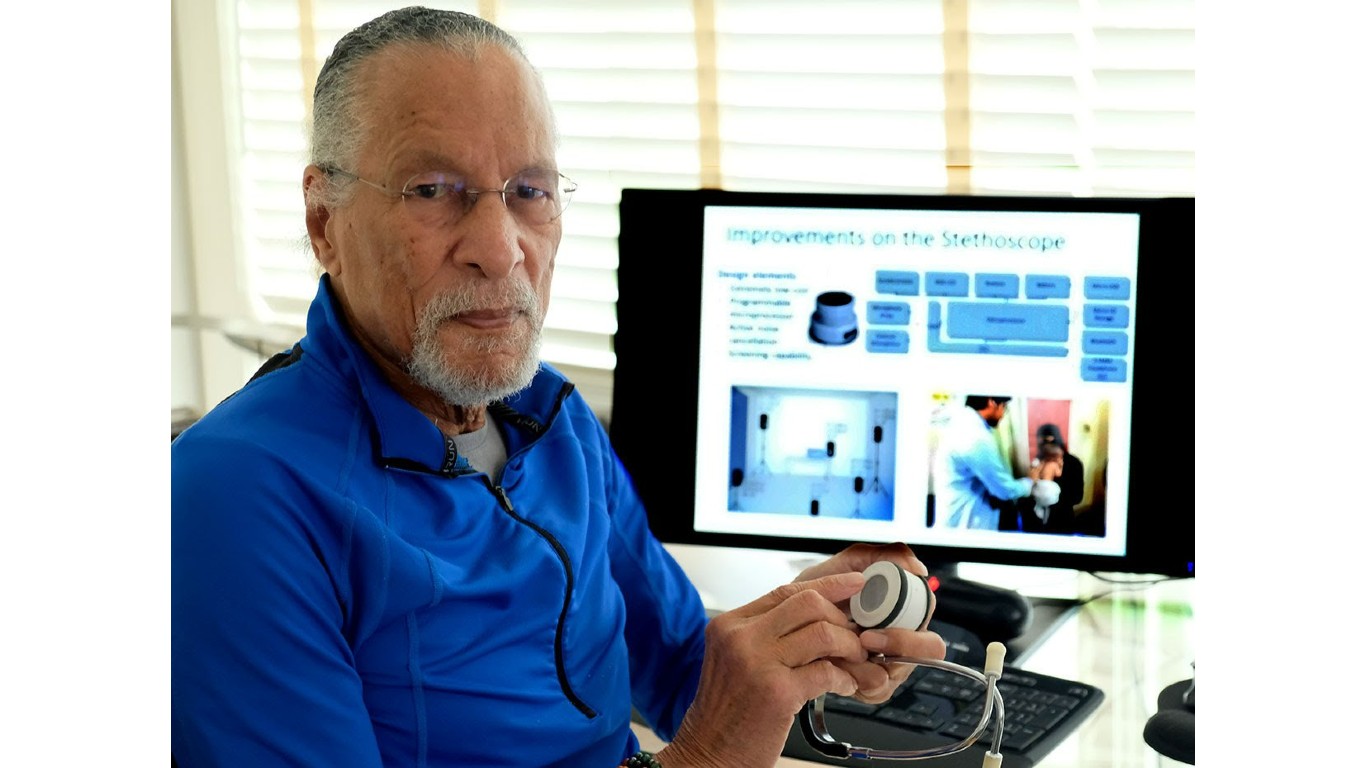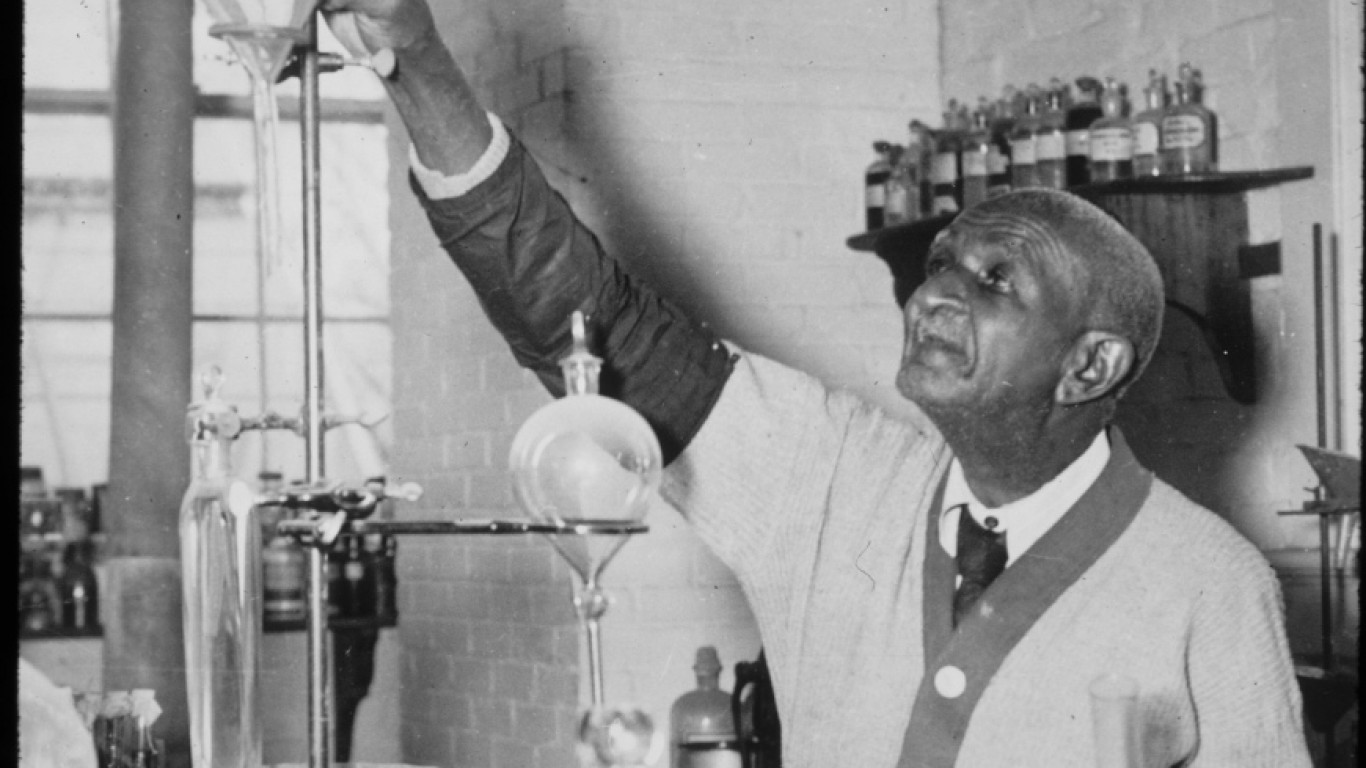
Percy L. Julian, an African American inventor, once said, “I have had one goal in my life, that of playing some role in making life a little easier for the persons who come after me.” As the holder of 130 patents – including industrial chemicals used in firefighting – Julian, who died in 1975, certainly has made a difference in society.
He is just one of a wealth of Black inventors – some of them former slaves or the sons or daughters of slaves – whose devices, inventions, processes, and innovations have made our lives better. To compile a list of some of them, 24/7 Tempo consulted numerous sources including History, Biography, Parents, and Invent (the website for the National Inventors Hall of Fame).
Many of the creations of these inventors were new devices or improvements on existing ones found in the home. These include the portable ironing board, the dustpan and the eggbeater. To maximize space in small apartments, one woman created a bed that could fold into a cabinet. For greater convenience, a man reduced treks to the post office by inventing the street letter box. (Read about 36 Black women who changed American history.)
Click here to read about Black inventors who made life easier
A Black inventor developed a refrigeration system in long-haul trucks that revolutionized the grocery industry. Others invented ways to improve safety outside the home, such as the three-way traffic light and automatic doors on elevators. An African-American’s development of a process for separating plasma from blood, allowing it to be stored for up to a week, has helped save countless lives. (Here are 30 NASA inventions we still use today.)
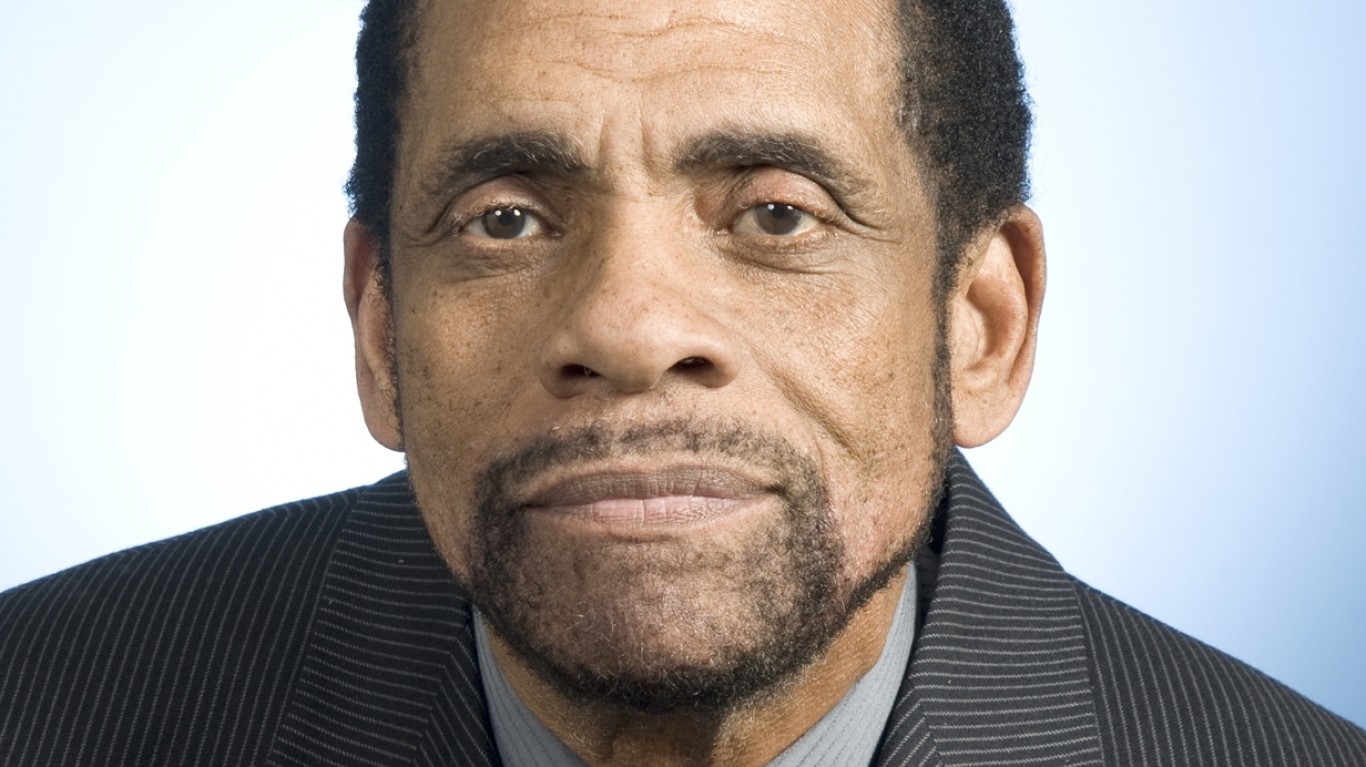
George Edward Alcorn Jr. (1940- )
> Notable invention: X-ray spectrometer
A physicist who worked at NASA, George Edward Alcorn Jr. played a role in revolutionizing astrophysics and semiconductor manufacturing. He’s best-known for creating an X-ray spectrometer, which he patented in 1984, used to analyze galaxies and other aspects of space. His research into plasma etching is still used in the production of semiconductors. Acorn has received eight patents in all for his work.
[in-text-ad]
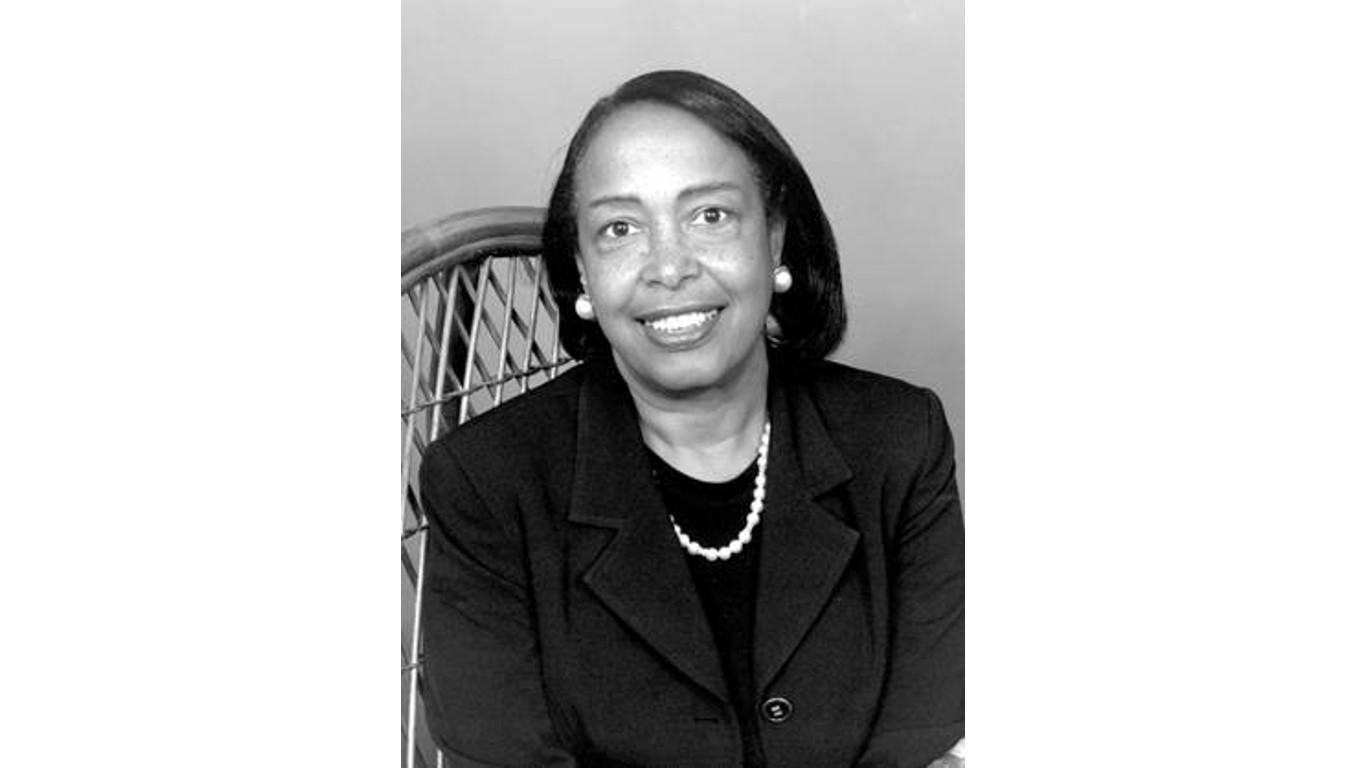
Dr. Patricia Bath (1942-2019)
> Notable invention: Laser cataract treatment device
In 1988, Dr. Patricia Bath became the first Black doctor to receive a medical patent – for a laser cataract treatment device called Laserphaco Probe. The device is used in cataract surgery and has helped improve the eyesight of millions of people.
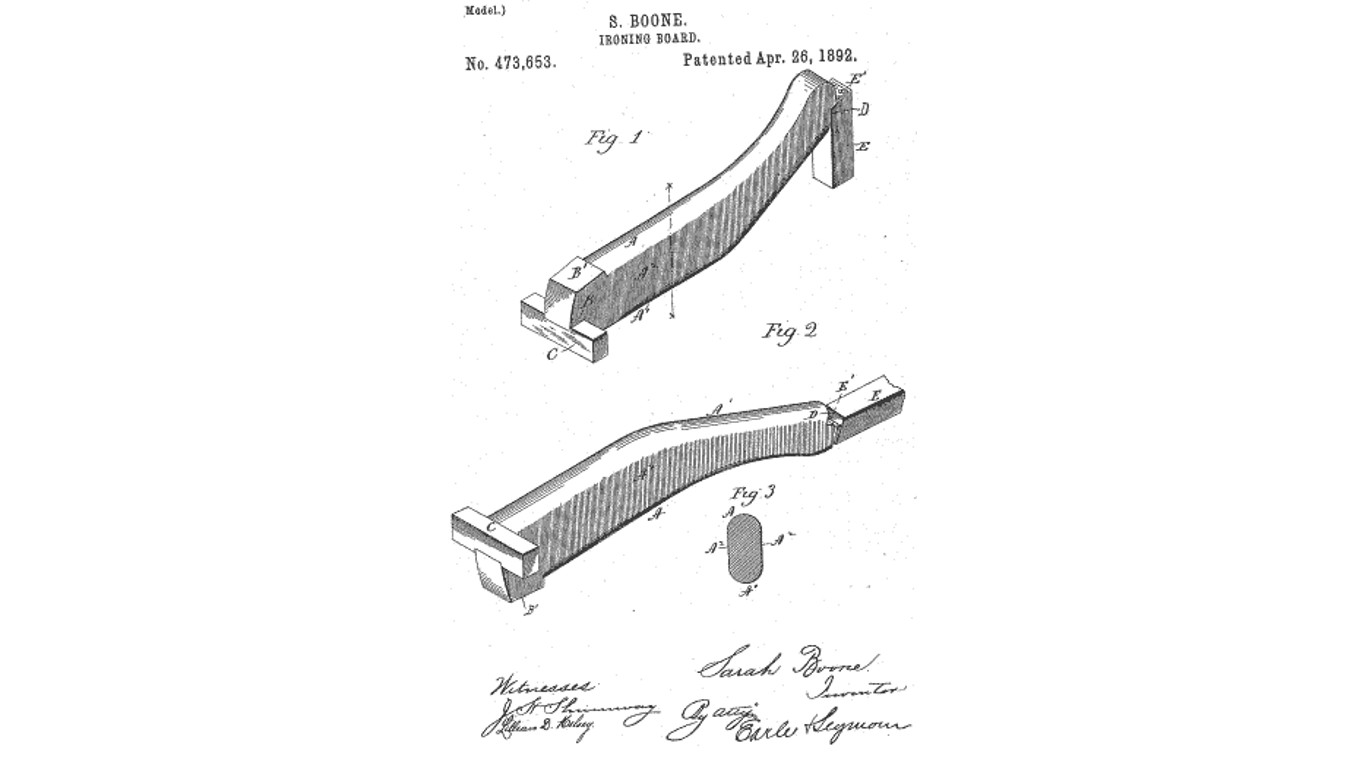
Sarah Boone (1832-1904)
> Notable invention: Improved portable ironing board
Sarah Boone, born into slavery, took Elijah McCoy’s invention of the portable ironing board and improved it in 1892. Her ironing board featured a narrower, curved design, making it easier to iron women’s clothing. The modern ironing board resembles Boone’s design.
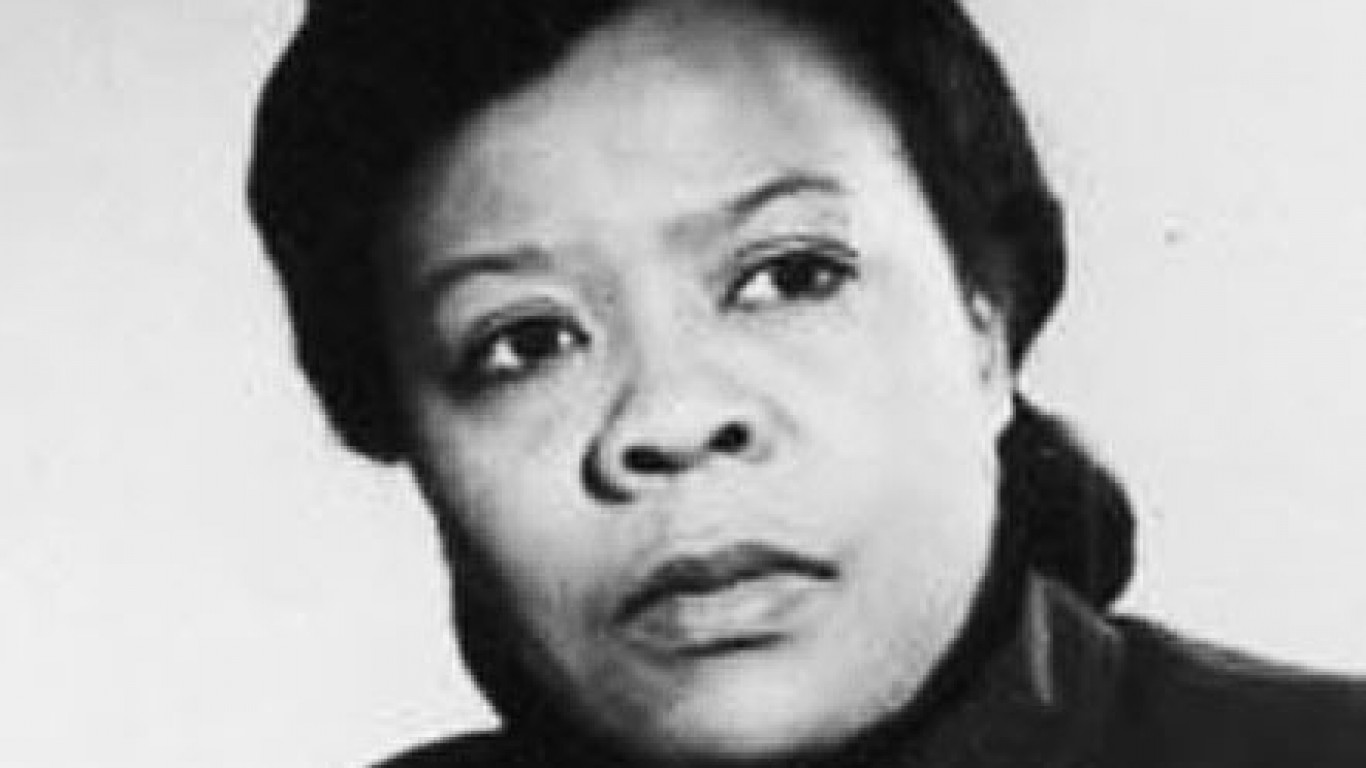
Marie Van Brittan Brown (1922-1999)
> Notable invention: Early video home security system
Marie Van Brittan Brown and her husband, Albert Brown, invented an early home security system. Marie was inspired to develop the system when she was working as a nurse and didn’t feel safe at home in Queens at night, especially when her husband was not home. Her name appeared above her husband’s on the patent granted for the invention, which was the first closed-circuit television security system and became the model for most such systems today.
[in-text-ad-2]

George Washington Carver (1864-1943)
> Notable invention: Developed methods to prevent soil depletion
Perhaps the most famous inventor on this list is Carver, an agricultural scientist who devised various uses for peanuts, sweet potatoes, and other crops that would combat soil depletion and improve farmers’ yields. He also developed numerous products based on the peanut – among them soap, face powder, mayonnaise, shampoo, and metal polish – and is credited with having inspired the organic farming movement in the South.
Marian Croak (1955- )
> Notable invention: Voice over Internet Protocol
Croak and her network engineering team at Bell Labs developed technology that permitted voice communication via the Internet. Known today as Voice over Internet Protocol, or VoIP, this technology is crucial for personal communications and remote work and conferencing.
[in-text-ad]

Mark Dean (1957- )
> Notable invention: Color IBM PC monitor and gigahertz chip
Before flat screens and high-definition LCD monitors, personal computer displays had no color and connected to computers with limited processing power. Mark Dean helped change that. An engineer at IBM who helped create that company’s first PC, Dean led the team that developed the color monitor and the first gigahertz processor. The latter device allows for higher processing rates at faster speeds in PCs.
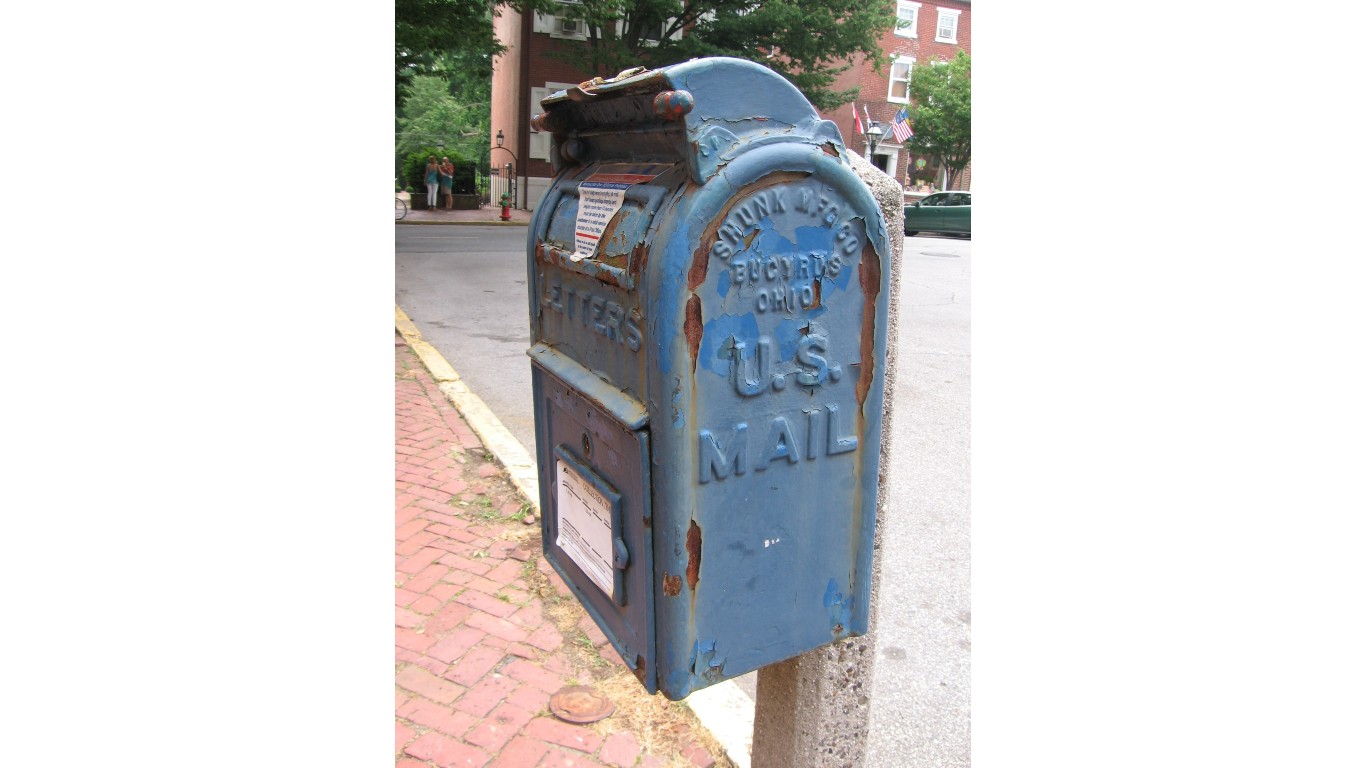
Philip P. Downing (1857-1934)
> Notable invention: Street letter box
Thanks to Downing, we don’t have to make the journey to the post office every time we have to mail a letter. Downing invented the street letter box, a metal box on four legs, and patented it in 1891.
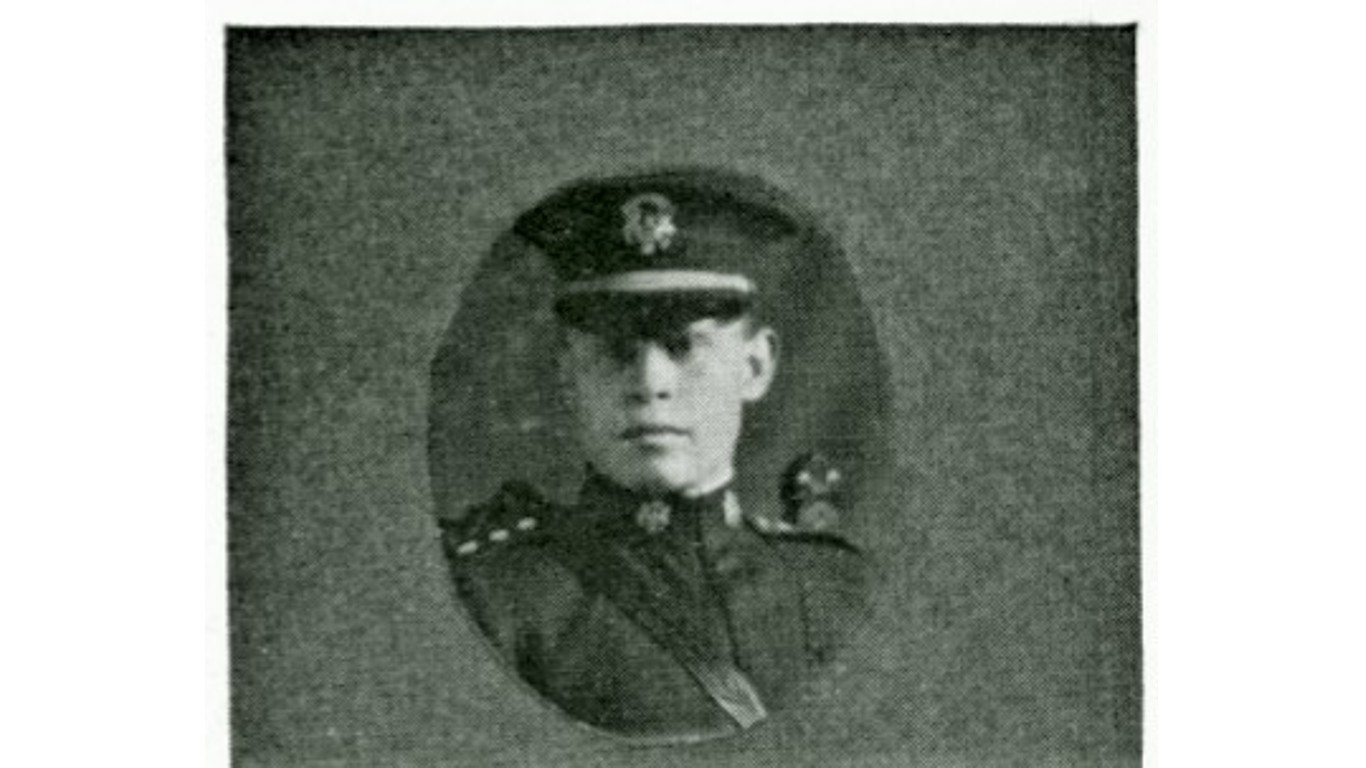
Charles Drew (1904-1950)
> Notable invention: Means of separating plasma from blood
Charles Drew invented a process of separating plasma from blood, allowing it to be stored for up to a week, far longer than had been possible. He worked with the American Red Cross during World War II, but resigned to protest the organization’s policy of segregating blood from white and Black donors.
[in-text-ad-2]
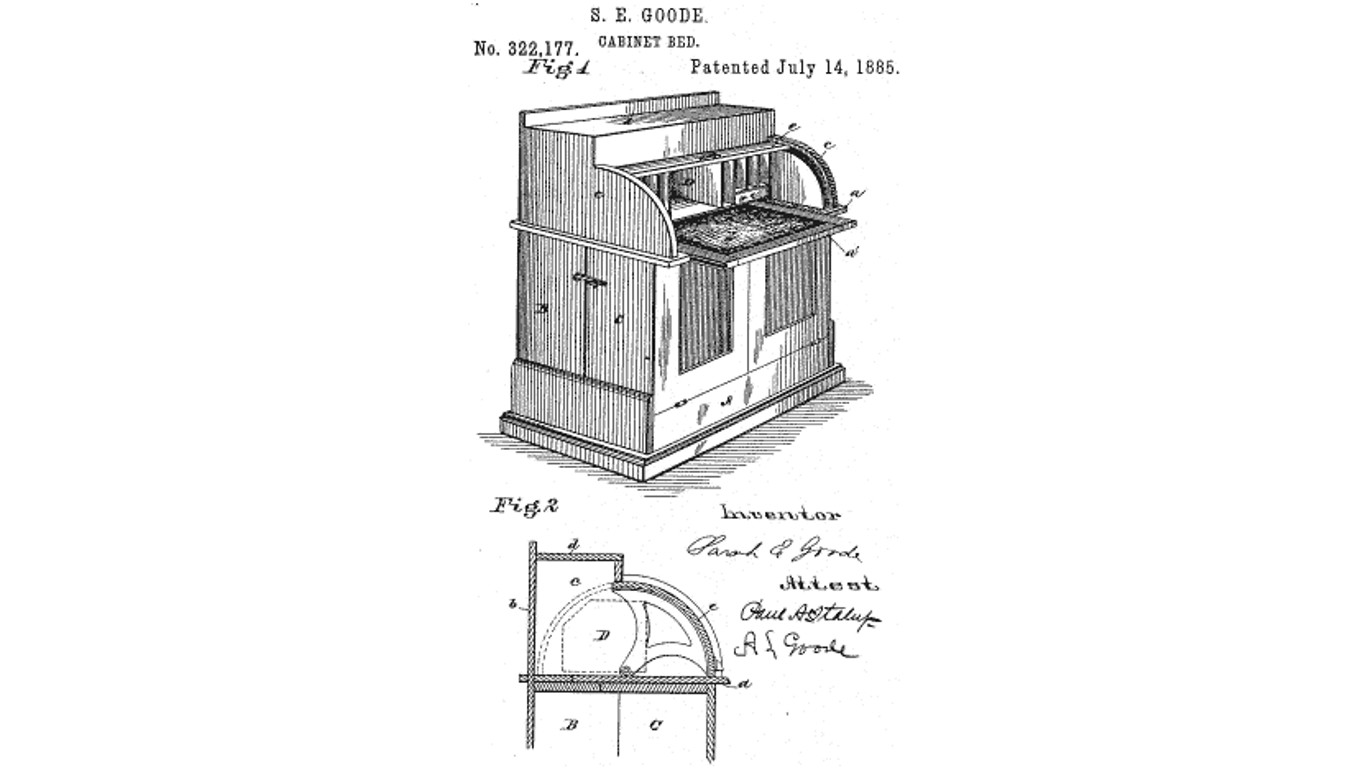
Sarah E. Goode (1855-1905)
> Notable invention: Folding cabinet bed
In 1885, Sarah E. Goode became one of the first Black women in the U.S. to receive a patent. Her invention: a folding cabinet bed. Goode and her husband ran a furniture store and to maximize space for her customers who had small apartments, she invented a bed that when folded, could be tucked away inside a roll-top cabinet.
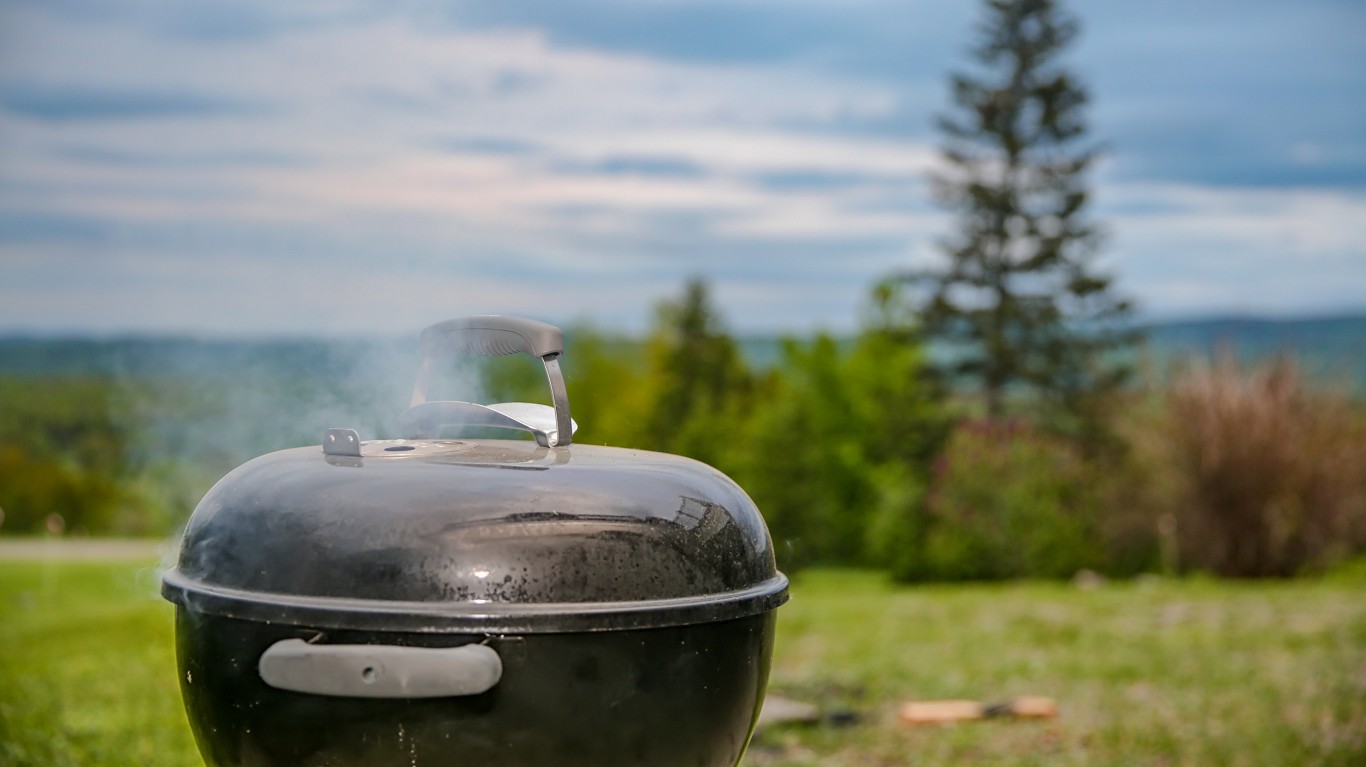
Joseph Hawkins (Unknown)
> Notable invention: Improved gridiron
A gridiron was a metal rack attached to a handle used to cook meat over a campfire or in a fireplace. Hawkins developed an improved version for home cooking, receiving a patent in 1845. Hawkins’ invention has evolved into today’s metal oven racks that allow food to be cooked at varying temperatures.
[in-text-ad]
Shirley Ann Jackson (1946- )
> Notable invention: Various telecommunications innovations
Shirley Ann Jackson, an American physicist and the first Black woman to graduate from the Massachusetts Institute of Technology, has had a hand in various telecommunications inventions, such as the portable fax, fiber optic cables, and caller ID. She has been inducted into the National Women’s Hall of Fame.
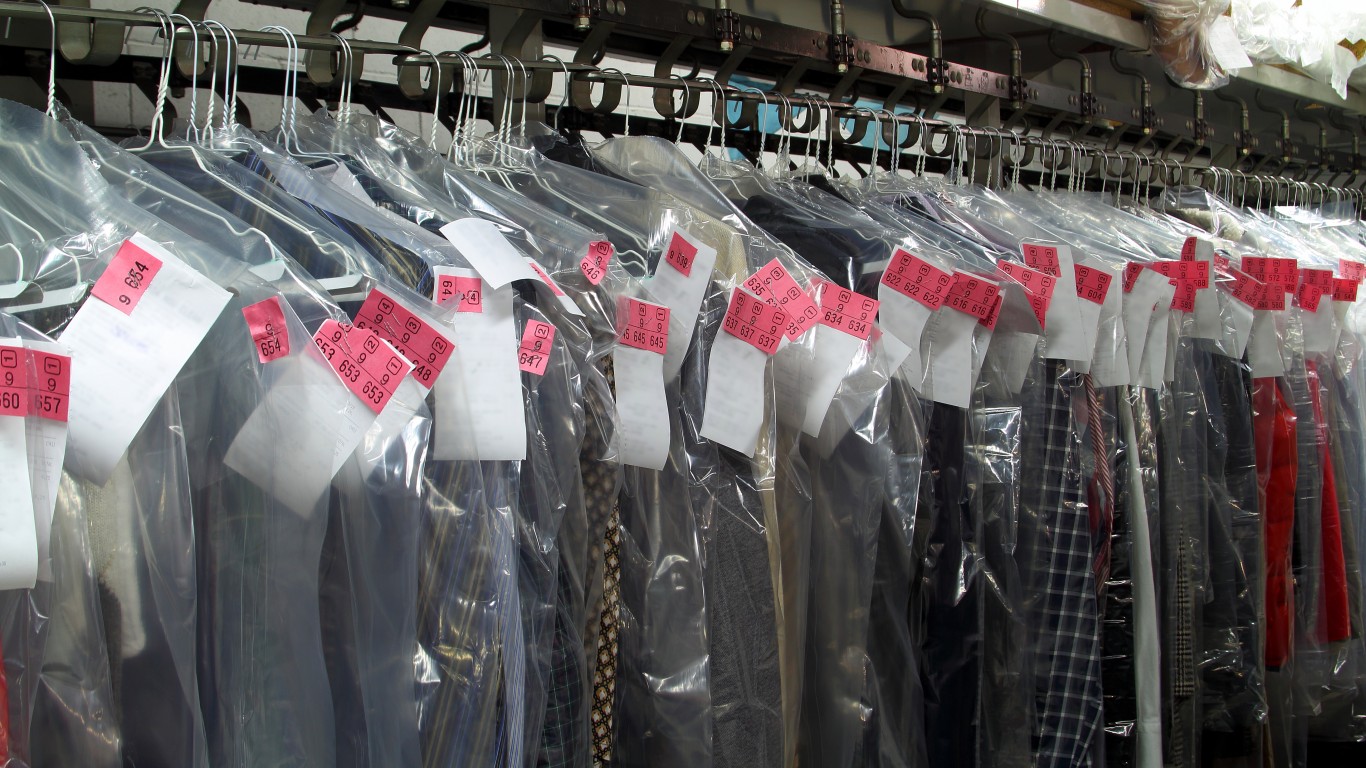
Thomas Jennings (1791-1856)
> Notable invention: Process for dry-cleaning delicate clothing
Thomas Jennings is believed to be the first African-American to have received a paten, awarded in 1821. Working as a tailor in New York City, he invented a process to dry-clean delicate clothes called “dry-scouring,” a forerunner of modern dry cleaning. Jennings became rich from his invention and used his money for the abolitionist cause.
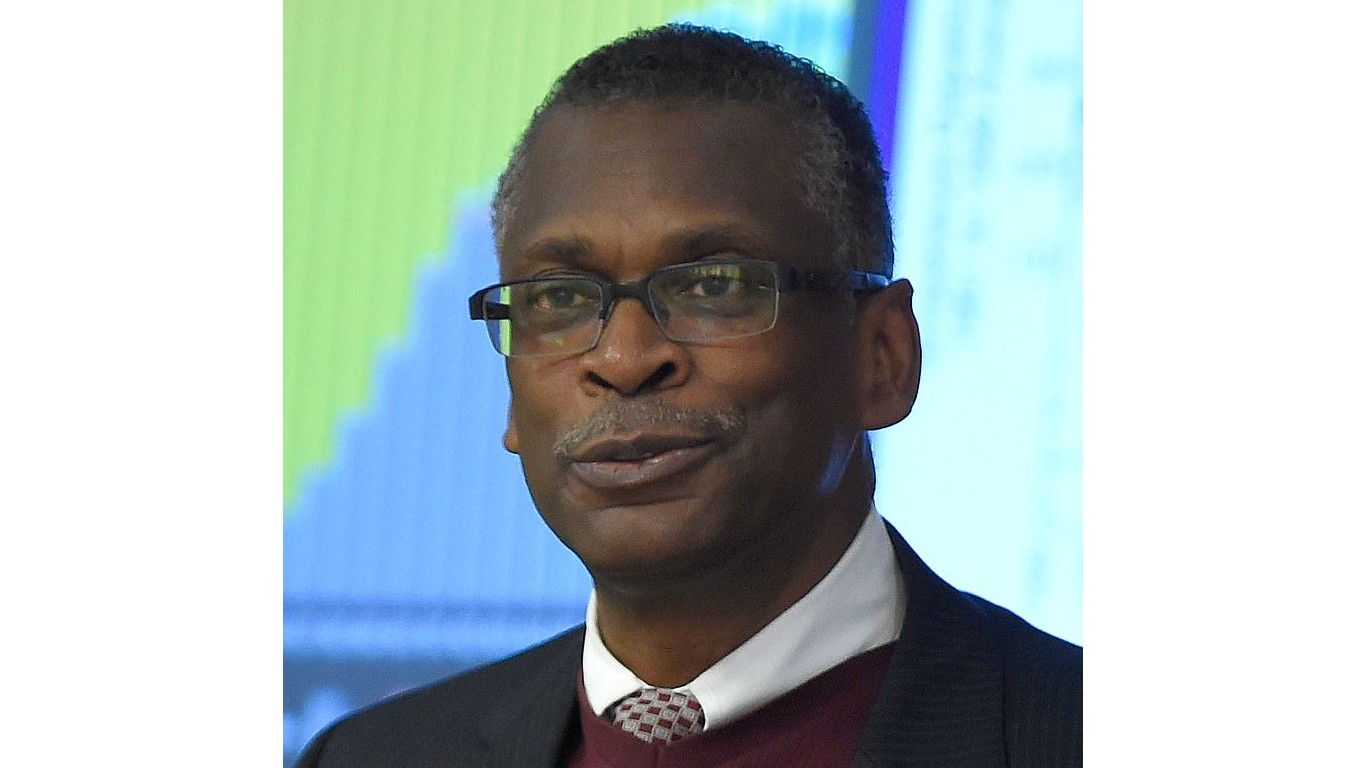
Lonnie Johnson (1949- )
> Notable invention: Super Soaker
Engineer Lonnie Johnson has worked on the stealth bomber and the Galileo space probe for NASA and holds more than 80 patents. But what he’s best known for is inventing the Super Soaker water gun that is a must-have in the arsenal of summertime fun. Patented in 1986, it has racked up more than $1 billion in sales.
[in-text-ad-2]
Willis Johnson (Unknown)
> Notable invention: Improved egg beater
Cooks can thank Willis Johnson for developing an improved egg beater that helped make their lives easier. Until Johnson patented the device In 1884, mixing ingredients was a laborious process done by hand. Johnson’s invention could be used for dough and other ingredients.

Frederick McKinley Jones (1893-1961)
> Notable invention: Automatic refrigeration equipment
Before the late 1940s, the only way for trucks to transport perishables was in containers filled with ice. Frederick McKinley Jones changed that by developing automatic refrigeration equipment that could be used on long-haul trucks. This revolutionized how grocery stores operated because they could sell products brought in from long distances.
[in-text-ad]
Percy L. Julian (1899-1975)
> Notable invention: Drugs and chemicals from natural soya products
Percy L. Julian was nicknamed the “soybean chemist” for his work in developing drugs and industrial chemicals from natural soya products. Among other things, he created a firefighting solution known as “bean soup” that helped save the lives of thousands of sailors and naval airmen during World War II. Julian earned more than 130 chemical patents in his lifetime.
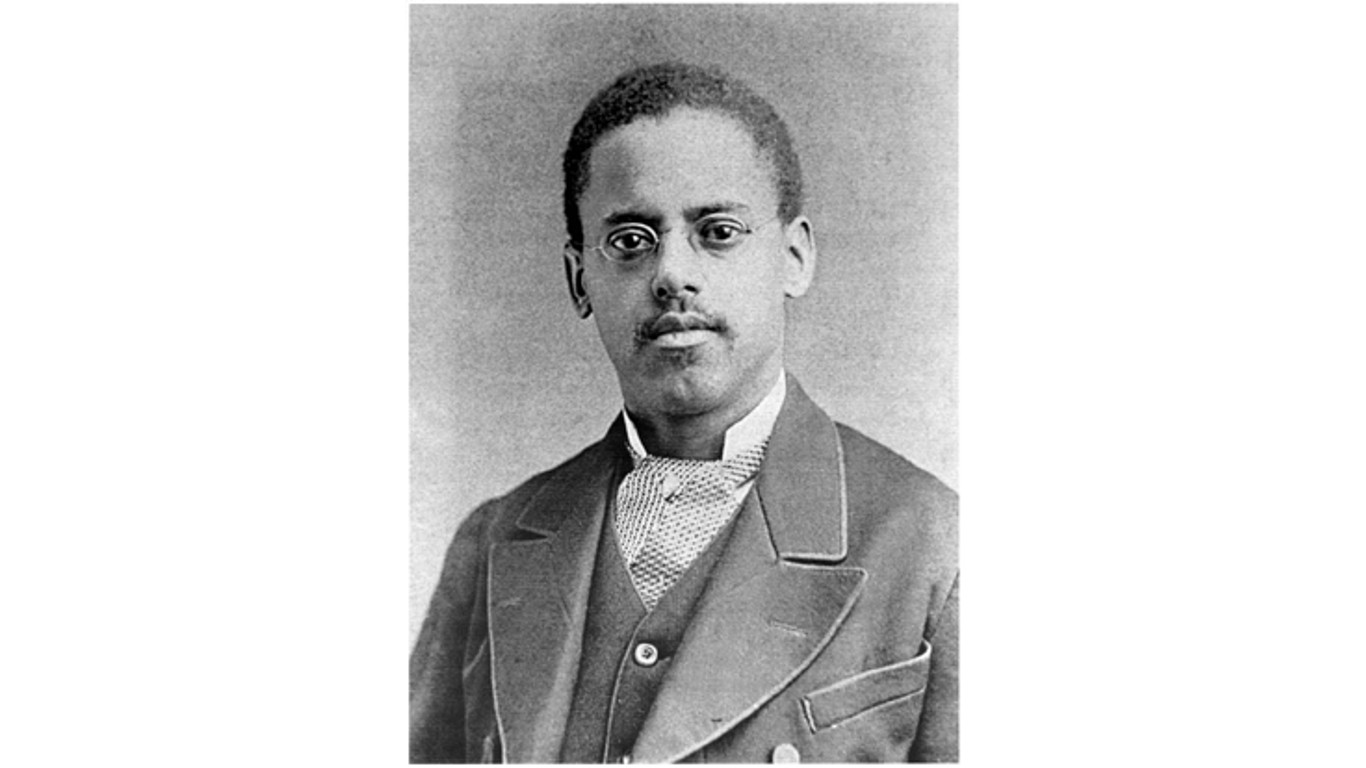
Lewis Latimer (1848-1928)
> Notable invention: Carbon light bulb filament
Lewis Latimer worked as a draftsman while serving in the Union Army during the Civil War. He helped draft the patent application for Alexander Graham Bell’s telephone. While he was working for the United States Electric Lighting Co. in the 1880s, Latimer invented a method for producing a more durable carbon filament, making incandescent lighting practical and more affordable for consumers.
Gerald A. Lawson (1940-2011)
> Notable invention: Video game console
Gerald A. Lawson, one of the few Black engineers working in the emerging Silicon Valley in the 1970s, created a console that allowed people to play a variety of video games at home. The system is used in games made by Atari, Nintendo, and PlayStation.
[in-text-ad-2]
Elijah McCoy (1844-1929)
> Notable invention: Locomotive engine lubricant
A son of slaves, Elijah McCoy was trained as an engineer in Scotland, but because of racial bias was not able to ply his trade. He became a railroad fireman and in that capacity, he developed a locomotive engine lubricant, allowing the engine to work longer. McCoy created other inventions in his lifetime and had 57 patents altogether. He also invented a portable ironing board and the lawn sprinkler.
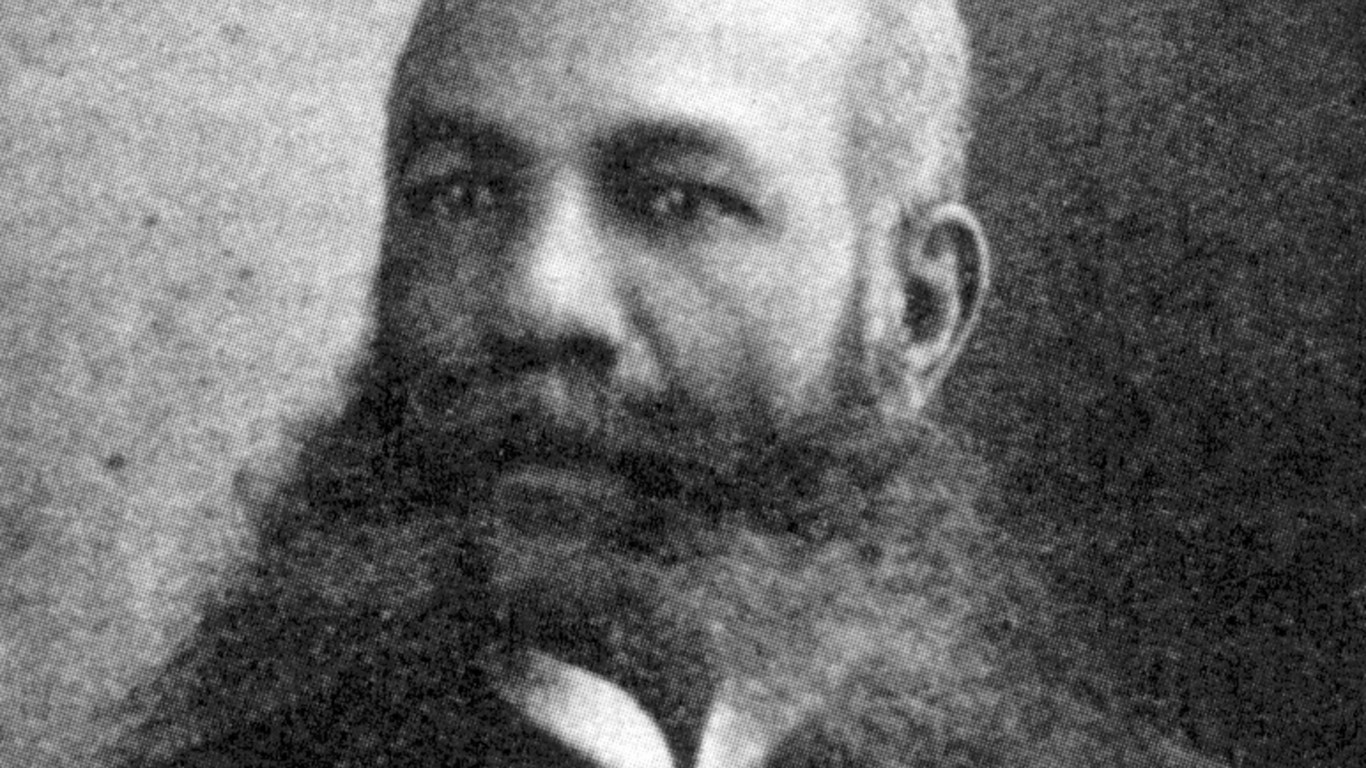
Alexander Miles (1838-1918)
> Notable invention: Automatic elevator door closing device
Alexander Miles invented an automatic elevator door-closing mechanism. Until his invention, for which he received a patent in 1867, the doors had to be opened and closed manually. Miles is a member of the National Inventors Hall of Fame.
[in-text-ad]
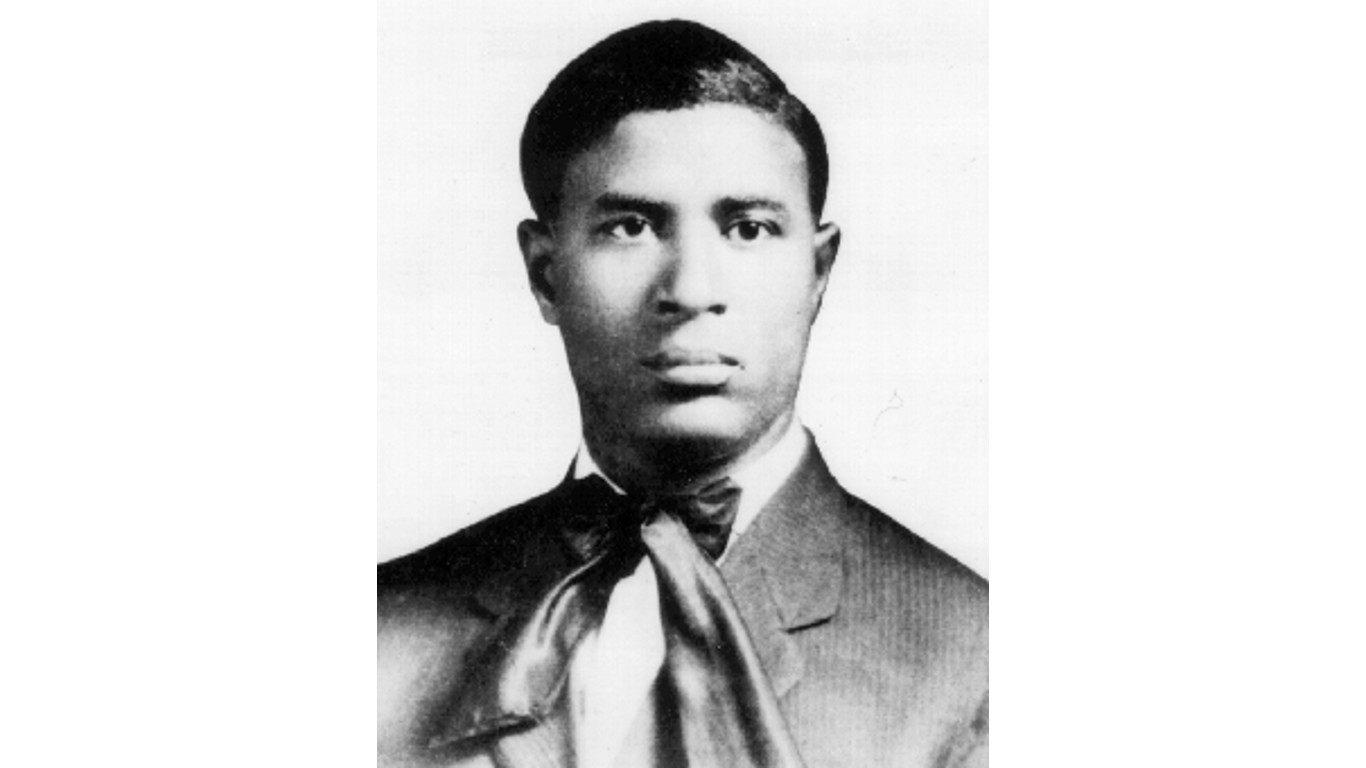
Garrett Morgan (1877-1963)
> Notable inventions: Three-light traffic signal; gas mask
Garrett Morgan, the son of a slave, is one of the more famous inventors on our list. He improved the electric traffic light, creating a three-light system still in use, after witnessing a terrible traffic accident. Morgan, who got the patent for the traffic light in 1923, also invented the gas mask and an improved version of the sewing machine.
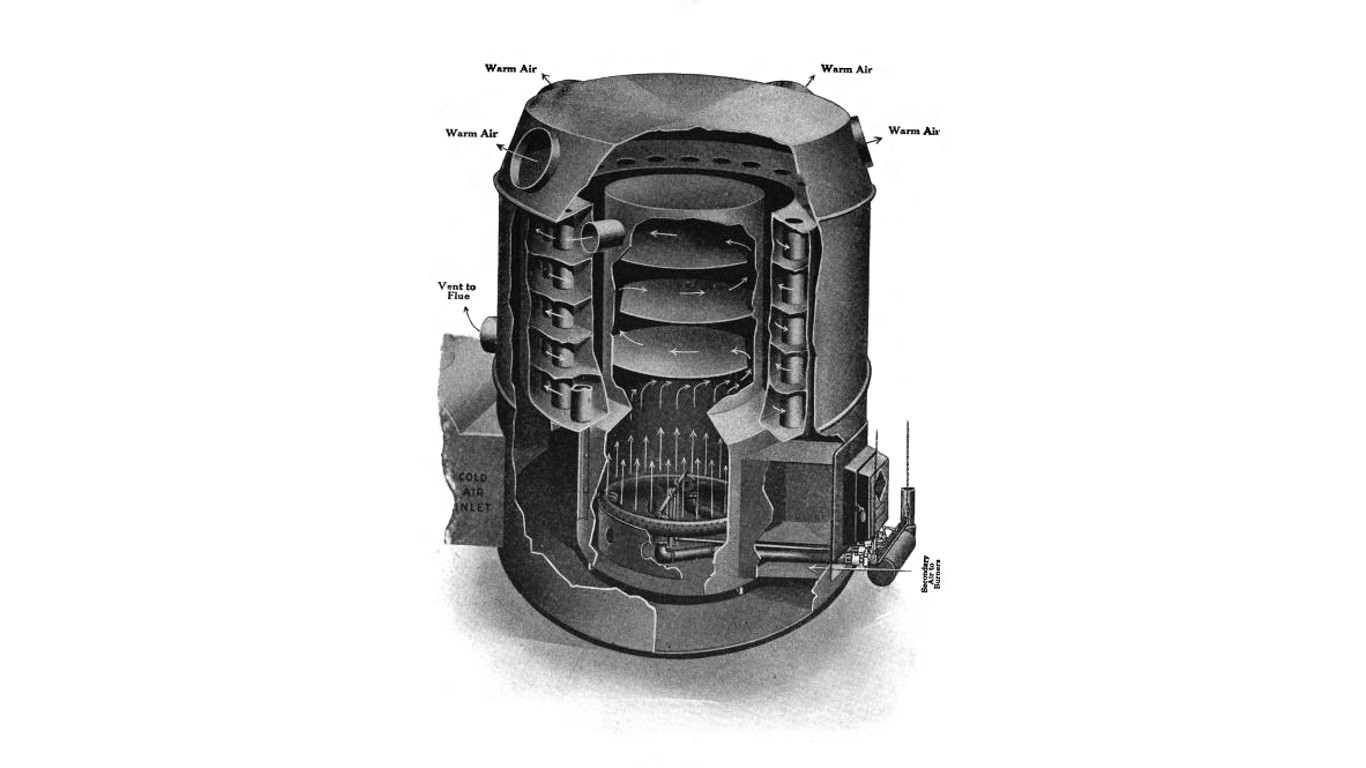
Alice H. Parker (1885-1920)
> Notable invention: Central heating system using natural gas
Alice H. Parker invented a central heating system that was the first to use natural gas. This greatly reduced the reliance of homeowners on fireplaces, which produced soot and ash. Parker received a patent for the system in 1919.
Lloyd Ray (1860-1940)
> Notable invention: Improved dustpan
Lloyd Ray helped take back strain out of cleaning by improving the dustpan. He attached a wooden handle to a metal collection plate that allowed users to sweep garbage into the pan without getting their hands dirty.
[in-text-ad-2]
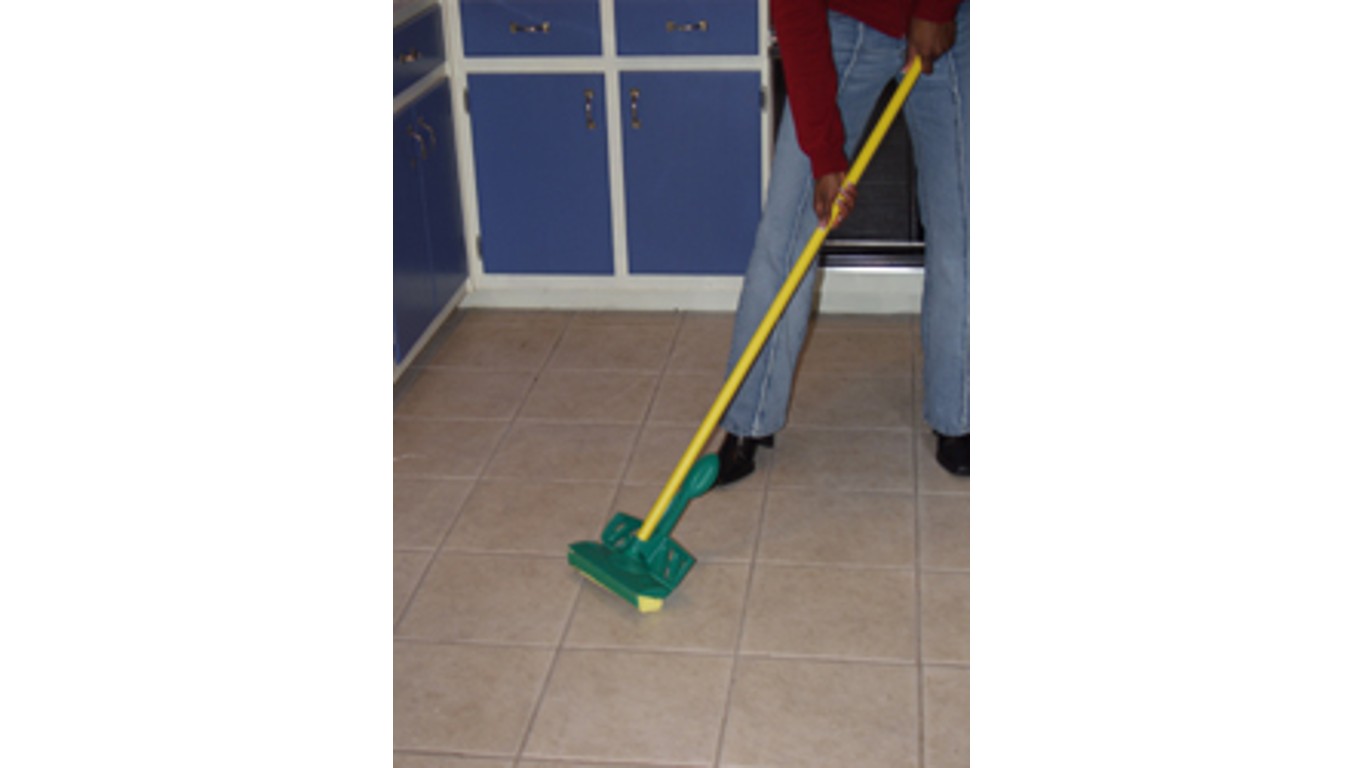
Thomas Stewart (1823-1890)
> Notable invention: Detachable mop head
Thomas Stewart improved the utility of a mop. He made his mop head detachable, making it easier to replace. He also designed a lever system allowing users to squeeze water from the mop.
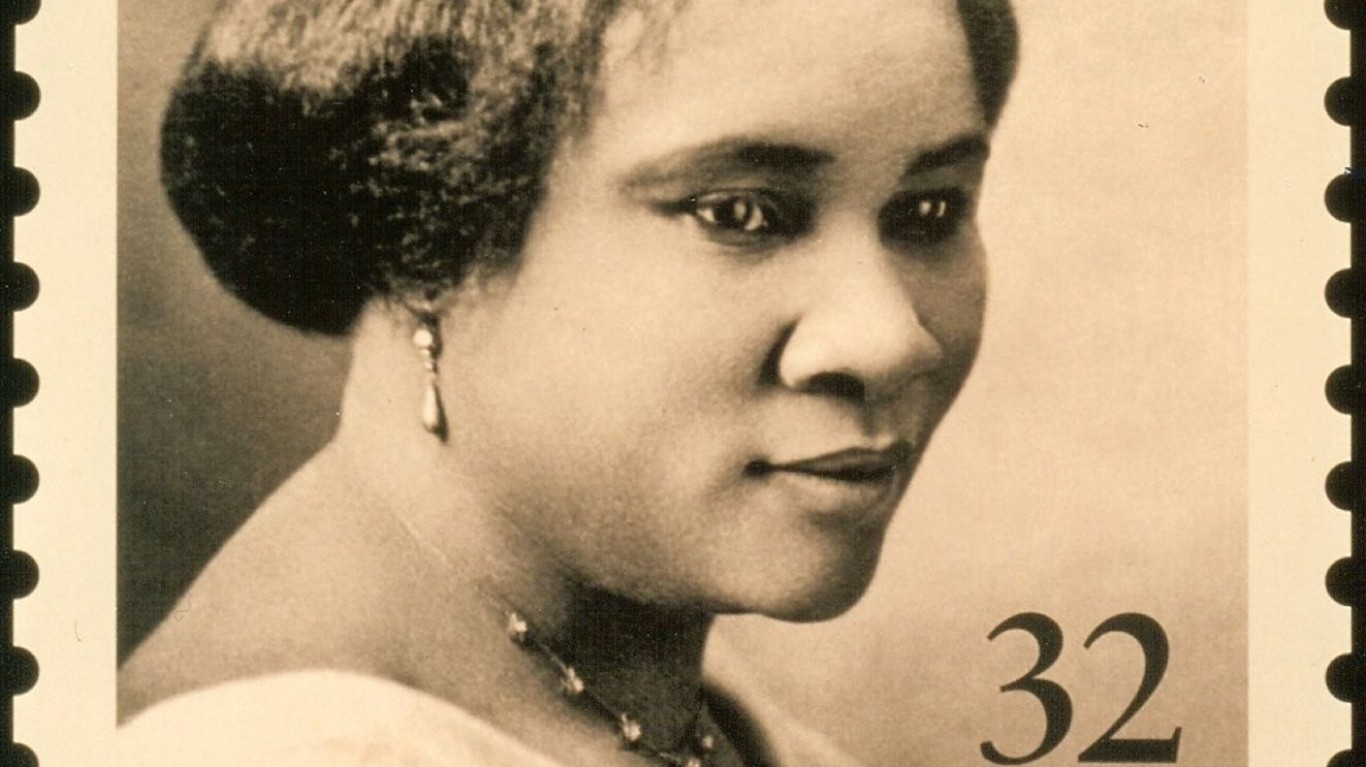
Madam C.J. Walker (1867-1919)
> Notable invention: African-American hair care products
Walker, born to former slaves, suffered hair loss because of a scalp condition. She invented a line of hair-care products for African-Americans in 1905 and became one of the first self-made Black millionaires in the United States.
[in-text-ad]
James E. West (1931-)
> Notable invention: Electret microphone
James E. West, along with colleague Gerhard Sessler, developed a small, lightweight, and less expensive microphone that is now used in telephones, hearing aids, baby monitors while working at Bell Laboratories. They received a patent in 1962.
in 1962.
100 Million Americans Are Missing This Crucial Retirement Tool
The thought of burdening your family with a financial disaster is most Americans’ nightmare. However, recent studies show that over 100 million Americans still don’t have proper life insurance in the event they pass away.
Life insurance can bring peace of mind – ensuring your loved ones are safeguarded against unforeseen expenses and debts. With premiums often lower than expected and a variety of plans tailored to different life stages and health conditions, securing a policy is more accessible than ever.
A quick, no-obligation quote can provide valuable insight into what’s available and what might best suit your family’s needs. Life insurance is a simple step you can take today to help secure peace of mind for your loved ones tomorrow.
Click here to learn how to get a quote in just a few minutes.
Thank you for reading! Have some feedback for us?
Contact the 24/7 Wall St. editorial team.
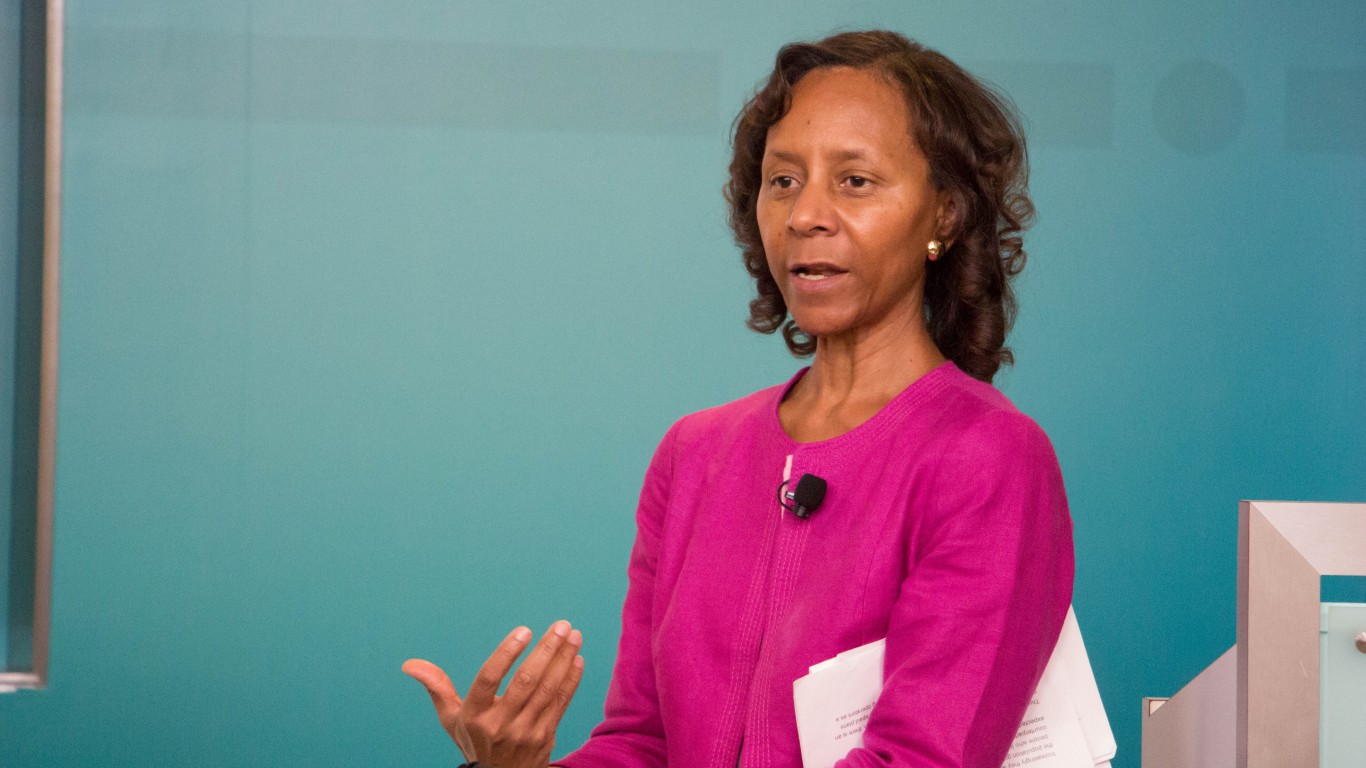
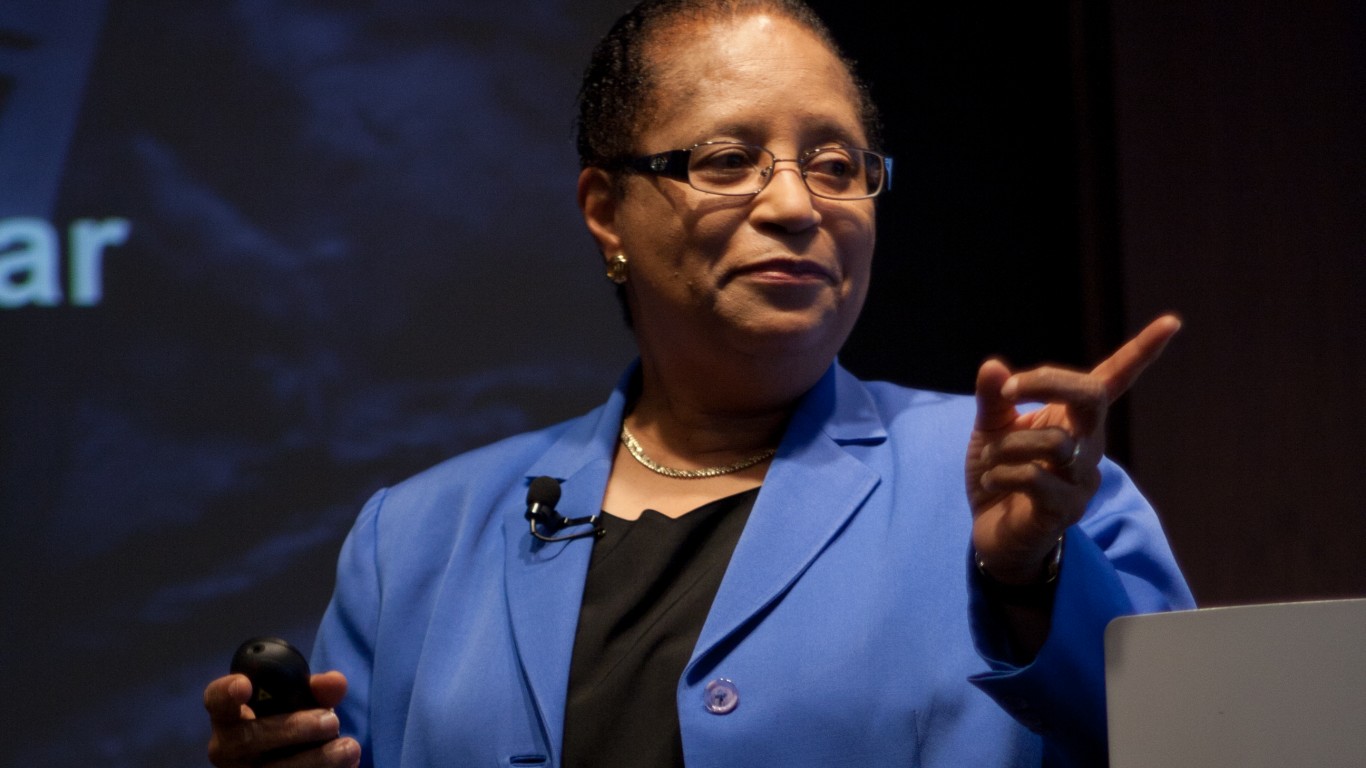
 24/7 Wall St.
24/7 Wall St.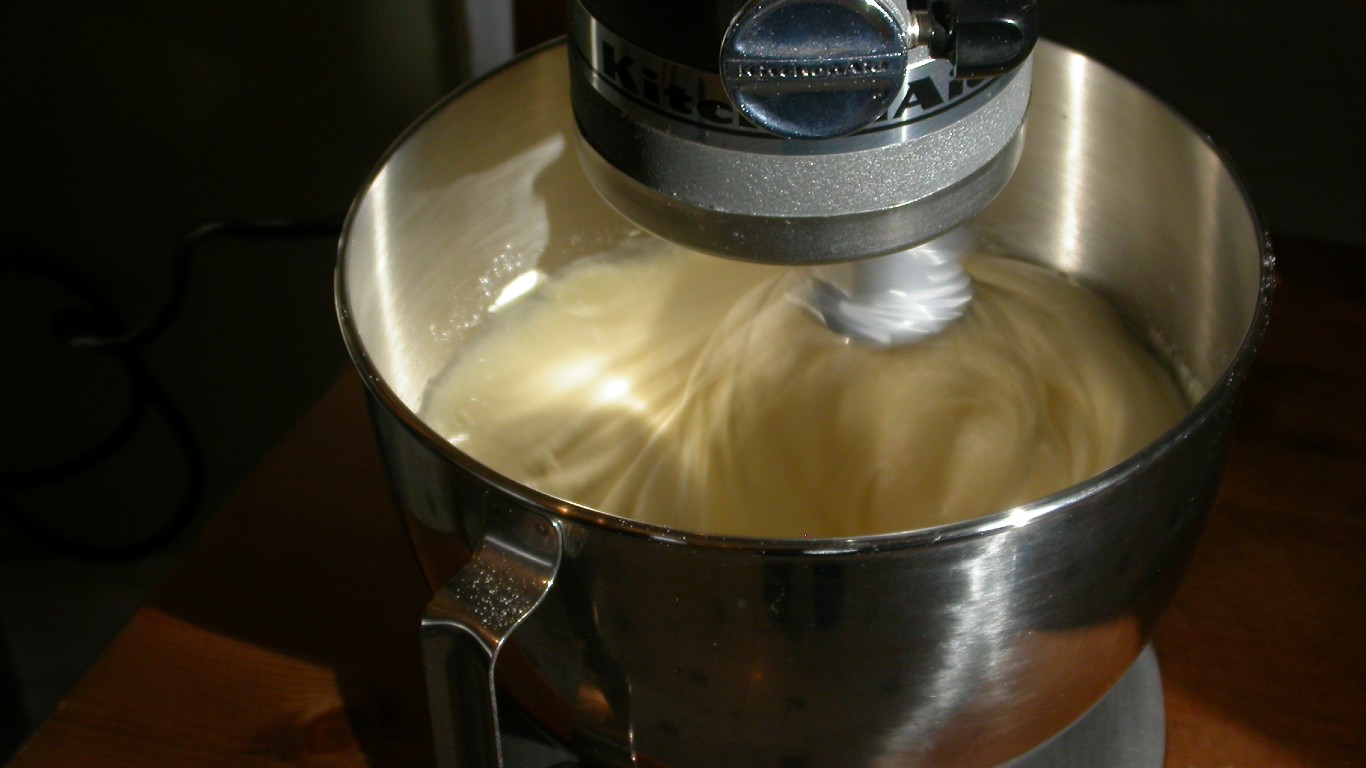
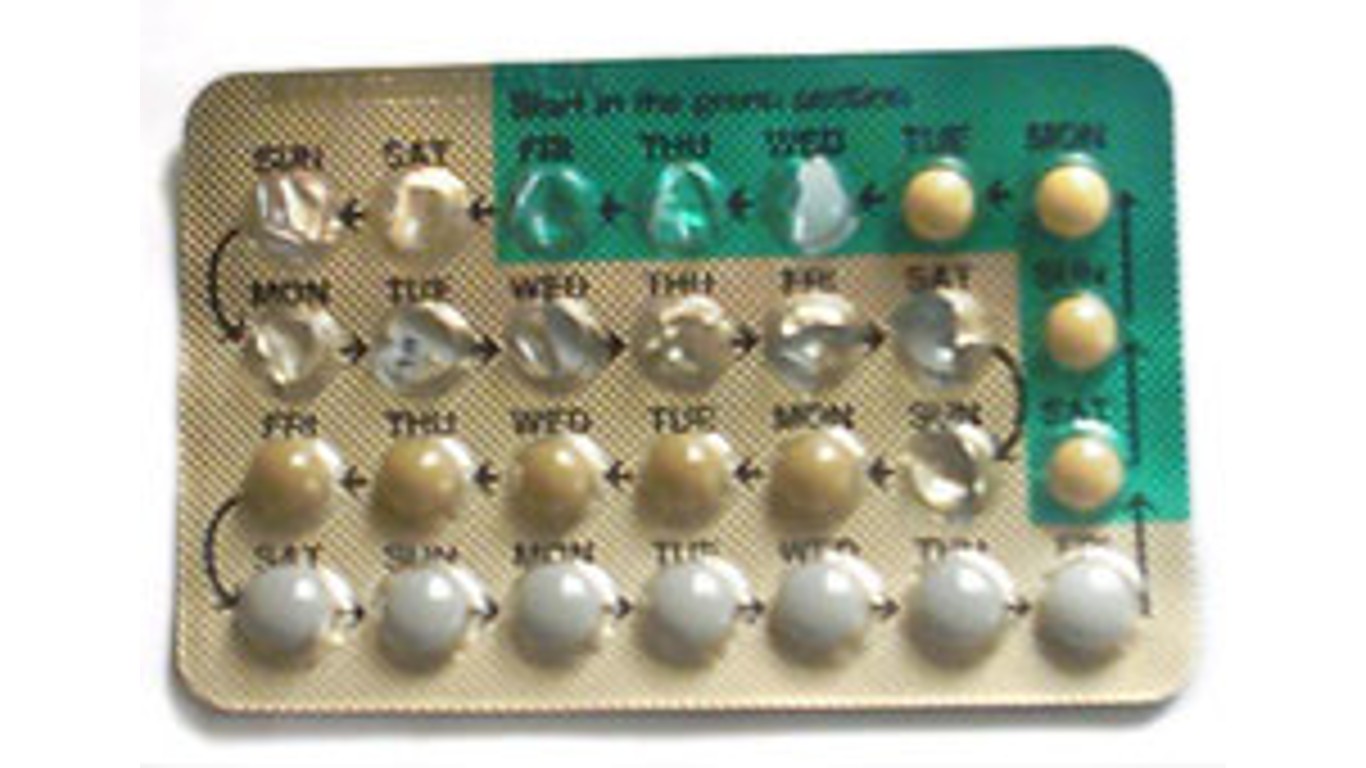
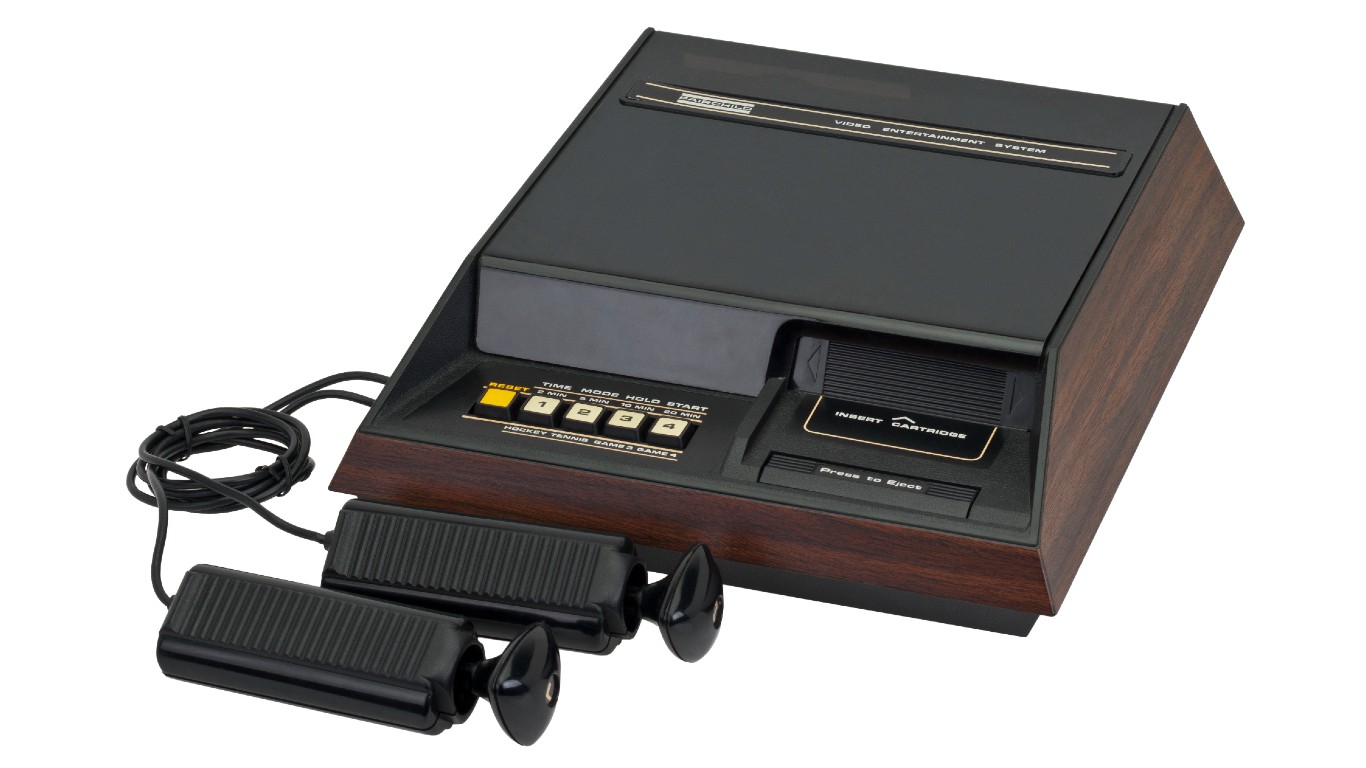
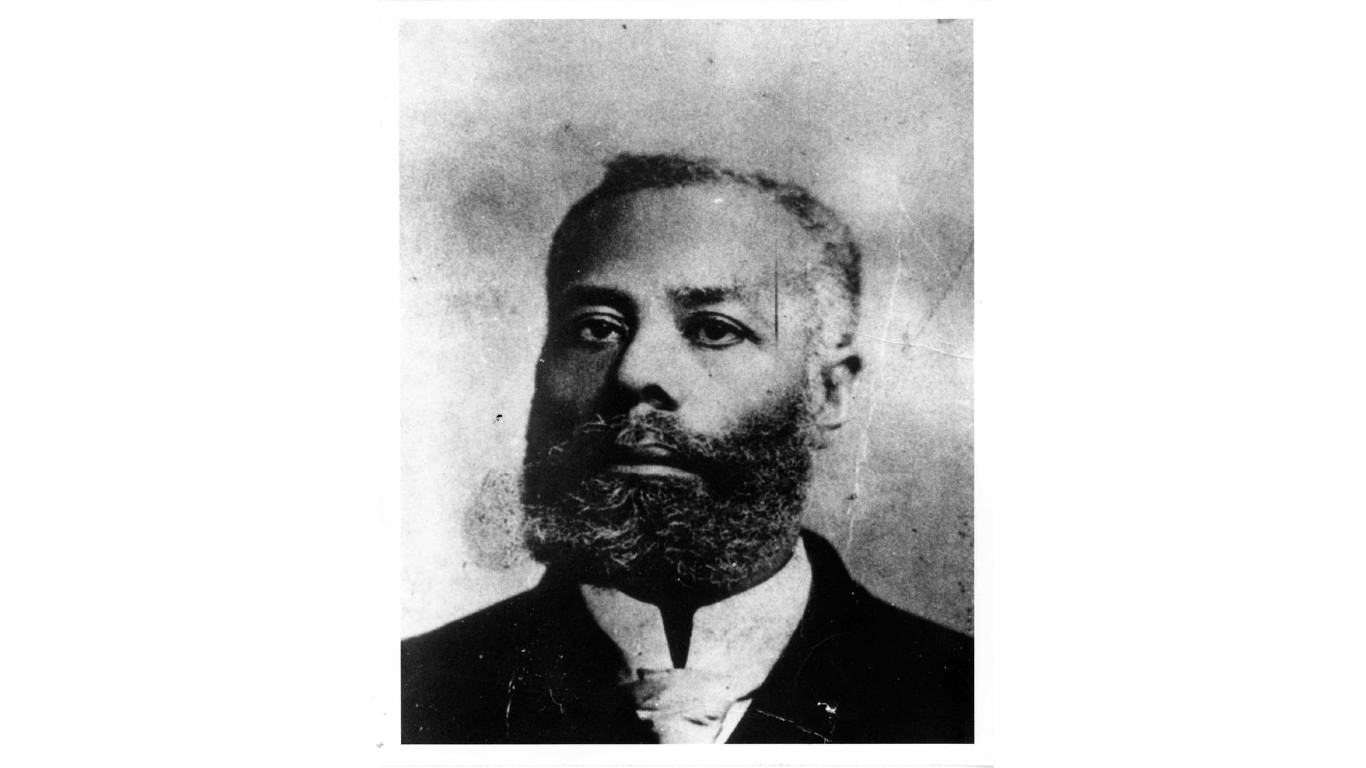
 24/7 Wall St.
24/7 Wall St.